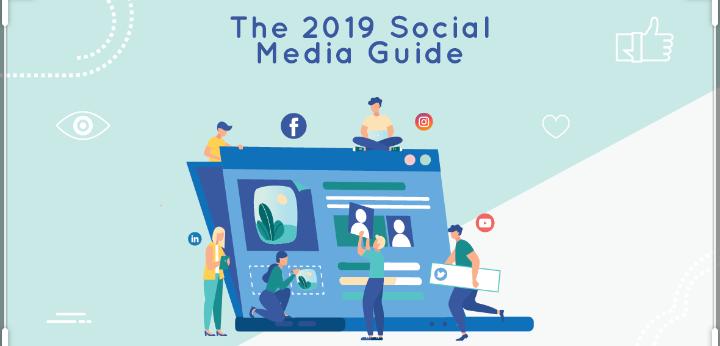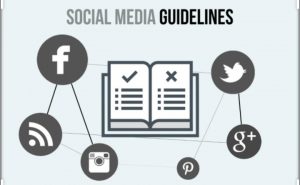
SOCIAL MEDIA GUIDELINES

Today we see as a part of social media in each and every aspect of our life from waking up of sleep to again laying over our beds we are scrolling over the social platform on our mobile phone screen .It is to be observed that so much indulgence of an individual bring concern over the misuse of the these platform more because if we see in past the technology has been not fully developed but now it is at the advance level that an underage is also running account despite of his age barrier .Recently SC of India show its concern over the matters involving social platform and giving instruction to govt to draft such guidelines .The draft rules proposed b y the government to curb unlawful content on social platform that make necessary for intermediaries to trace the “originator “ of such content .In fact , in July 17 , 2018 judgement in the Tehseen S. Poonawalla vs Union Of India on 17 July, 2018 the Supreme Court have given guidelines to curb the activities of mob lynching and steps taken by officials while handling of such cases and even its
guidelines were passed regarding social media as-;
The Central and the State Governments should broadcast on radio and television and other media platforms including the official websites of the Home Department and Police of the States that lynching and mob violence
of any kind shall invite serious consequence under the law.
It shall be the duty of the Central Government as well as the State Governments to take steps to curb and stop dissemination of irresponsible and explosive messages, videos and other material on various social media platforms which have a tendency to incite mob violence and lynching of any kind.
The police shall cause to register FIR under Section 153 A of IPC and/or other relevant provisions of law against persons who disseminate irresponsible and explosive messages and videos having content which is likely to incite mob violence and lynching of any kind.
Today it is very necessary to bring in notice of individual that he cannot use
these social platform as the way he likes to spread hatred ,communal violence ,disgracing modesty of the women on social platform .
In Re: Prajwala Letter Dated … vs ………. on 11 December, 2018- A short affidavit has been filed on behalf of the Ministry of Home Affairs by the learned ASG pursuant to order dated 22.10.2018 and subsequent orders including order dated 06.12.2018. The Government of India may frame the necessary Guidelines / SOP and implement them within two weeks so as to eliminate child pornography, rape and gang rape imageries, videos and sites in content hosting platforms and other applications. Now it is to be observe that there is no as specific guidelines regarding the use of social media but SC by it various judgment is ordering the govt to make such rules which are efficient to stop the wrong acts .
Even this have all brings concern of the SC where on 24 September 2019 supreme court Various writ petitions have been filed in different High Courts in the country wherein the petitioners have raised various grievances with regard to the intermediaries (social media platforms etc.) as defined in the Information Technology Act, 2000 (for short ‘the IT Act’). In some of the petitions, it was claimed that Aadhar should be linked to the identity/account of each user of the services provided by the intermediaries. In some of the cases, the grievance is that the intermediaries are not providing information in respect of the originator of the communication/content which has been circulated/transmitted/shared on the platforms provided by the intermediaries.
The main issue arising in these petitions is how and in what manner the intermediaries should provide information including the names of the originators of any message/content/information shared on the platforms run by these intermediaries. There are various messages and content spread/shared on the social media, some of which are harmful. Some messages can incite violence. There may be messages which are against the sovereignty and integrity of the country.
Social media has today become the source of large amount of pornography. Pedophiles use social media in a big way. Drugs, weapons and other contraband can be sold through the use of platforms run by the intermediaries. In such circumstances, it is imperative that there is a properly framed regime to find out the persons/institutions/bodies who are the originators of such content/messages. It may be necessary to get such information from the intermediaries. Under the IT Act and the rules framed there under intermediaries are also required to furnish some information. Section 87 of the IT Act gives power to the Central Government to frame rules and in terms thereof, the Information Technology (Intermediaries Guidelines) Rules, 2011 have been notified.
Sub rule 4 and sub-rule 7 of Rule 3 of these Rules require the intermediaries to store certain information and that information has to be provided in accordance with the Rules. Some of the intermediaries submit that they cannot provide information either with regard to the content or with regard to the originators because they have end to end encryption and therefore, even the intermediaries are not in a position to find out who is the originator or what is the content. Before the Madras High Court one Professor of an IIT filed an affidavit that he is in a position to provide the technology which would enable the intermediary to DE-encrypt the encrypted message as and when the need arises.
According to him, both the content and the identity of the originator of the content can be easily found. On the other hand, another Professor has filed an affidavit to the contrary. It is not for this Court to enter into the scientific
field as to how and in what manner DE-encryption can be done. Reference may be made to the Information Technology (Procedure and Safeguards for Interception, Monitoring and Decryption of Information) Rules, 2009.
We must also highlight that DE-encryption, if available easily, could defeat the fundamental right of privacy and DE-encryption of messages may be done under special circumstances but it must be ensured that the privacy of an
individual is not invaded. However, at the same time, the sovereignty of the State and the dignity and reputation of an individual are required to be protected. For purposes of detection, prevention and investigation of certain criminal activities it may be necessary to obtain such information.
DE-encryption and revelation of the identity of the originator may also be necessary in certain other cases, some of which have been highlighted herein above. We find that the law in this regard is still at a nascent stage and technology keeps changing every day, if not every hour. There are various creases which need to be ironed out. Though, the guidelines provided that the intermediaries should furnish the information, it is not clear how the intermediaries who are based abroad and do not even have grievance officer posted in the country, would be compelled to reveal this information. Before the Madras High Court, a statement was made on behalf of the Union of India that this matter is under active consideration of the Government of India. Ms. Aparna Bhat, learned counsel submitted that the draft rules in this regard have already been framed and are only required to be notified.
BY – MAHIMA NAYYAR
EDITED BY-RUPAL
Good one
Very informative
Nice article and like the way the author has mentioned the sections and bare acts reference where needed.
Very knowledgeable and informative one